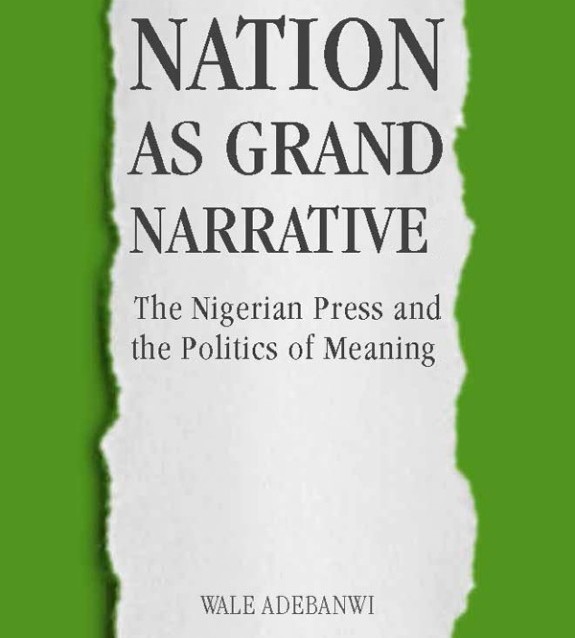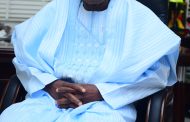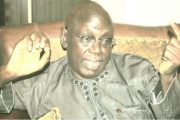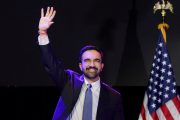The contention on the ground is that there is nothing yet from any of the over sixty presidential candidates that addresses taking Nigeria ‘From the Third to the First World’. All the candidates are still selling brickbats. Is there any chance that by their activist pedigree, some of the candidates can make a difference?
The question is what a model of such a narrative might look like. This question was dismissed in the second part of this series which was titled “Still Waiting for Candidate Atiku Abubakar’s Emancipation Metaphor”. The reason for doing so is because no presidential candidate in Nigeria today needs any tutorials before s/he can craft an inspiring manifesto. Any presidential aspirant who cannot construct and wave a banner of hope from the prevailing anarchical situation in the country is already sending a problematic signal.
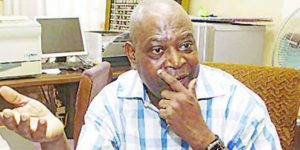
The late Iyayi
Be that as it may, there is no doubt about it that the late Dr. Festus Iyayi did leave behind something from which presidential candidate can pick something, one way or the other. Why might a 2010 Speech he titled “Assassins of Nation Building, 2011 Elections and Electoral Reforms in Nigeria: Chronicle of a Death Foretold” be worth the while of someone struggling to be president of Nigeria in 2019? The answer to that is the clarity of Iyayi’s insight into the Nigerian crisis. As such, he ends up providing something around which the media, the civil society especially labour, religion and academia; the qualitative segment of the right wing establishment, people of conscience but most importantly, presidential candidates, can cohere in terms of a much, much more fundamental entry point into the ‘trouble with Nigeria’. Here is just one paragraph from that speech in relation to the theme in question:
“In many parts of the world, individuals feel specially honoured if their day of birth falls within the halo of some significant national or historical event: the day of the revolution, the day of the declaration of independence, the day of man’s landing on the moon, the day of freedom for Nelson Mandela. Following this, all those who are about to mark or are actually marking their 50th birthday in Nigeria ought to have their noses in the air. … The achievements of the nation ought to be part and parcel of the development of those who are about to or have just attained 50 years of age. …Thus this address ought to be devoted to themes like “Responding to Nuclear Threats: The Role of Nigeria’s New Missile AF50”, “Retaining Nigeria’s Leadership in Car Manufacturing: Keeping the Japanese Behind”, “Sharing Nigeria’s Cure for Malaria with the World” or “Teaching the World How to Dance: Lessons from Nigeria’s Democratic Success”. Unfortunately, the story of Nigeria at 50 is such that not only can we not devote ourselves to such themes, we find that our individual lives have been diminished by the dismal failure of the country to realise its great potentials”
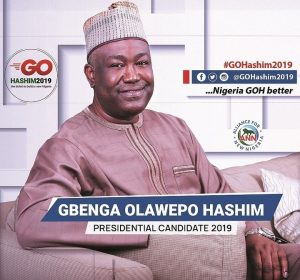 The argument here is that although the presidential race is featuring over 60 runners, there is a set of them that are more challenged by history to toe the Iyayi line of reasoning. These are Gbenga Olawepo-Hashim, Oby Ezekwesili and Obadiah Mailafia. In the case of Gbenga Olawepo-Hashim, he is a product of Nigeria’s Generation Radical – the practitioners of the radical nationalism that taught Nigeria how to say no to post-colonial authoritarianism in a pan-Nigerian manner. Before that generation in 1976/77, Nigeria was still unclear how best to do it. That generation overcame the ethno-regional, religious divides, developed the discourses as well as the tactics of undermining authoritarianism, both of the military and civilian power elite. A product of such a moment in history is obliged to revert to that pedigree because he or she has no higher or more elevated referents. Olawepo-Hashim has cast his eyes beyond the radius of radical nationalism, gone into what his fellow travellers in that movement would call bourgeois politics like several others and even explored business, all of which could combine to put him in a position to provoke thoughts, overcome the ‘African big man’ syndrome and raise the stakes in 2019.
The argument here is that although the presidential race is featuring over 60 runners, there is a set of them that are more challenged by history to toe the Iyayi line of reasoning. These are Gbenga Olawepo-Hashim, Oby Ezekwesili and Obadiah Mailafia. In the case of Gbenga Olawepo-Hashim, he is a product of Nigeria’s Generation Radical – the practitioners of the radical nationalism that taught Nigeria how to say no to post-colonial authoritarianism in a pan-Nigerian manner. Before that generation in 1976/77, Nigeria was still unclear how best to do it. That generation overcame the ethno-regional, religious divides, developed the discourses as well as the tactics of undermining authoritarianism, both of the military and civilian power elite. A product of such a moment in history is obliged to revert to that pedigree because he or she has no higher or more elevated referents. Olawepo-Hashim has cast his eyes beyond the radius of radical nationalism, gone into what his fellow travellers in that movement would call bourgeois politics like several others and even explored business, all of which could combine to put him in a position to provoke thoughts, overcome the ‘African big man’ syndrome and raise the stakes in 2019.
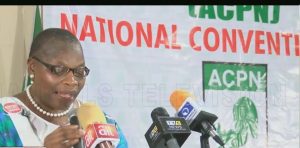 Dr Oby Ezekwesili does not belong in Olawepo’s category in terms of pedigree. In fact, she is a product of a completely different orientation. It would be surprising if any activists can remember such a name in the politics of Women in Nigeria, (WIN), for example. Today, she has, however, registered strongly in the protest politics of the civil society. Whether that has interrogated her exposure to the de-statising ideology of the World Bank remains unclear but if she has the sense of joining in kicking against the outcomes of what World Bank policies in Africa have contributed in bringing about, then she subscribes to the Iyayi entry point in understanding the Nigerian crisis/crisis in Nigeria.
Dr Oby Ezekwesili does not belong in Olawepo’s category in terms of pedigree. In fact, she is a product of a completely different orientation. It would be surprising if any activists can remember such a name in the politics of Women in Nigeria, (WIN), for example. Today, she has, however, registered strongly in the protest politics of the civil society. Whether that has interrogated her exposure to the de-statising ideology of the World Bank remains unclear but if she has the sense of joining in kicking against the outcomes of what World Bank policies in Africa have contributed in bringing about, then she subscribes to the Iyayi entry point in understanding the Nigerian crisis/crisis in Nigeria.
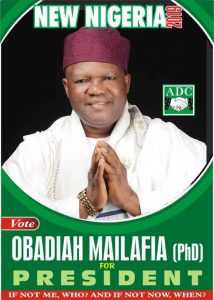 The last on this list is Dr Obadiah Mailafia whose education alone puts him in the Iyayi canvass of Nigeria the moment he moves into seeking presidential powers. Compelled by stressfulness of the national question in recent times, Dr Mailafia has been singing a song that many are not clear about. But, like Obi Ezekwesili, Mailafia is another case study in transformation. It is a bit surprising that one of the few to produce a discourse of Nigeria, Dr Mailafia still has no slogans, metaphors and clichés traceable to him across Nigeria.
The last on this list is Dr Obadiah Mailafia whose education alone puts him in the Iyayi canvass of Nigeria the moment he moves into seeking presidential powers. Compelled by stressfulness of the national question in recent times, Dr Mailafia has been singing a song that many are not clear about. But, like Obi Ezekwesili, Mailafia is another case study in transformation. It is a bit surprising that one of the few to produce a discourse of Nigeria, Dr Mailafia still has no slogans, metaphors and clichés traceable to him across Nigeria.
The point here is that, by pedigree, these and one or two others are the candidates who should raise the stakes in the matter of firing national imagination at a moment of morass as this. The ability to do that does not necessarily mean they are winning the election. Rather, it makes them leaders because they would have defined the standards in this respect and, therefore, made a lasting contribution to democratisation. Is it going to be a long wait?
It bears repeating that the idea is that any president, governor or whatever office holder whose performance in the first term is not out rightly stellar, exceptional or exemplary to warrant his or her re-election by acclamation deserves to be defeated. In other words, the current view of second term as something that an office holder is entitled to is another of the strange canons of democratic politics in Nigeria. A second term in office is not a right but a privilege granted to an incumbent who has delivered or who can produce a sound justification for failure. In terms of The Presidency or even the Office of the Governor in Nigeria, the criteria for assessing performance are fairly measurable as to forestall the though meaningful claim that performance is not an objective thing. The other side of the theory is that the person or the party that should defeat the incumbent for non-performance must be waving a narrative of the future that can guarantee his or her election by acclamation. Otherwise, the country might be going for another dead duck.

